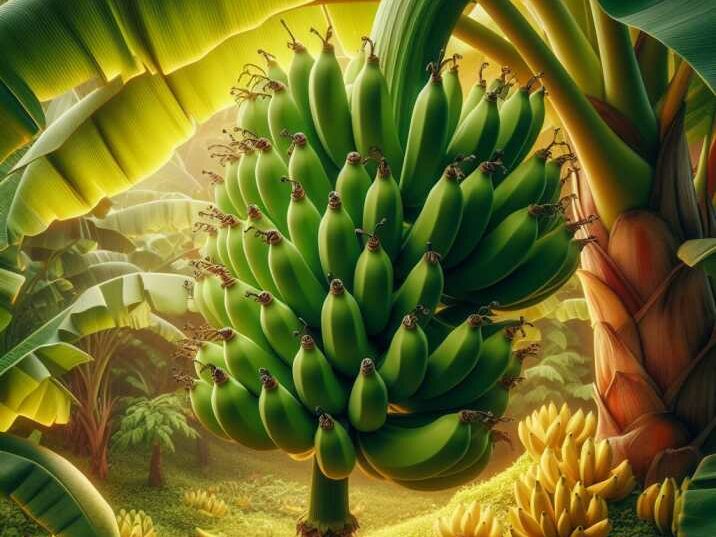Introduction:
Table of Contents
Bananas have long been a staple in our diets, but not all bananas are created equal. One variety, in particular, stands out in the bunch – the Cavendish banana. In this article, we will discuss about the distinguishable traits that set Cavendish Bananas Apart from Other Varieties? exploring their taste, texture, nutritional content and more.

How Cavendish Bananas Apart from Other Varieties
The Allure of Cavendish Bananas
Cavendish bananas have captured the hearts of banana enthusiasts worldwide. Their unique combination of sweetness, texture, and versatility sets them apart from their counterparts.
A Symphony of Flavors and Textures
When it comes to taste, Cavendish bananas strike a perfect balance between sweetness and a mild tartness, making them a crowd-pleaser for all palates. Their creamy texture adds to the overall appeal, offering a delightful mouthfeel.
Moreover, Cavendish bananas are known for their uniform size and shape, making them visually appealing and easy to handle. This characteristic makes them an ideal choice for various culinary applications, from baking to snacking.
Nutritional Riches in Every Bite
Beyond their taste and texture, Cavendish bananas pack a nutritional punch. They are rich in essential nutrients such as potassium, vitamin C, and vitamin B6. This makes them not only a tasty treat but also a healthy addition to your daily diet.
Resilience in the Face of Challenges
Cavendish bananas have proven their resilience in the face of agricultural challenges, particularly against diseases that have affected other banana varieties. The ability of Cavendish bananas to withstand such threats has contributed to their widespread cultivation and availability.
Table of Information:
| Trait | Cavendish Bananas | Other Varieties |
|---|---|---|
| Taste | Balanced sweetness | Varies |
| Texture | Creamy | Differing textures |
| Nutritional Content | High in potassium | Varied nutrients |
| Disease Resistance | Resilient | Susceptible |
Conclusion:
Cavendish bananas stand out not only for their delightful taste and texture but also for their nutritional content and resilience against challenges. As we unravel the unique traits that make Cavendish bananas distinct, it becomes clear why they remain a favorite worldwide. So, the next time you enjoy a Cavendish banana, savor not just the flavor but the culmination of characteristics that sets it apart from the banana bunch.
Frequently Asked Questions (FAQs)
1. Are Cavendish bananas genetically modified?
No, Cavendish bananas are not genetically modified. They are a naturally occurring variety of banana that has been cultivated through traditional breeding methods.
2. Are Cavendish bananas more susceptible to diseases compared to other varieties?
While Cavendish bananas do face certain diseases, such as Panama disease, they are known for their relative resilience compared to other banana varieties. However, ongoing efforts in research and cultivation techniques aim to address disease resistance in all banana varieties.
3. Are there any specific storage requirements for Cavendish bananas?
Cavendish bananas should be stored at room temperature until ripe. Once ripe, they can be refrigerated to extend their shelf life. Avoid storing them in direct sunlight or in overly humid conditions, as this can accelerate ripening and lead to spoilage.
4. How do I know when a Cavendish banana is ripe and ready to eat?
Cavendish bananas are typically ripe when their skin turns yellow and develops small brown spots. The fruit should yield slightly to gentle pressure when pressed. If you prefer a firmer texture, you can consume them when they are still slightly green.
5. Can I use Cavendish bananas for baking and cooking?
Yes, Cavendish bananas are versatile and can be used in a variety of culinary applications. They are commonly used in baking recipes for banana bread, muffins, and cakes due to their natural sweetness and creamy texture. Additionally, they can be used in smoothies, desserts, and savory dishes.
